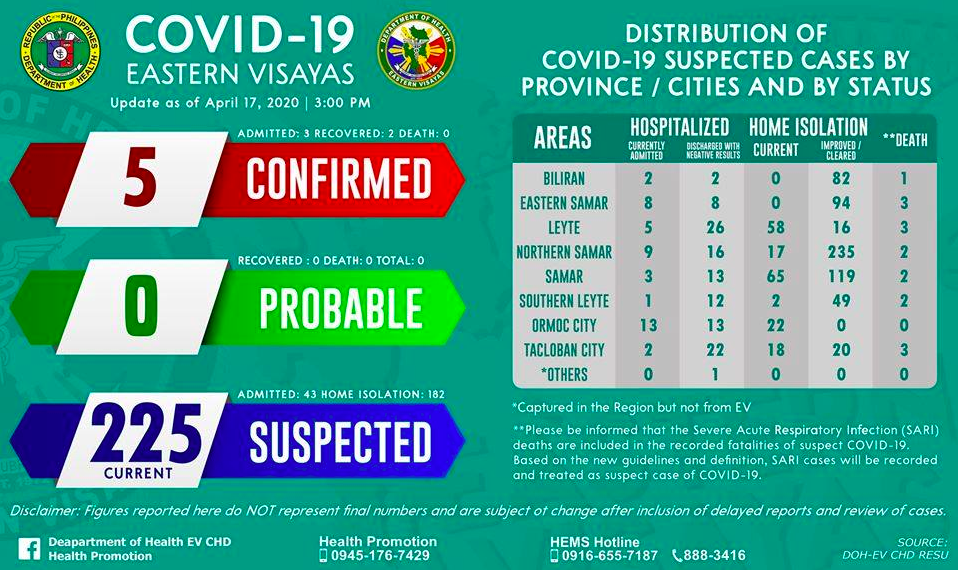LGUs tighten border controls as DOH confirms 1st COVID-19 case in Leyte

MAASIN CITY, Southern Leyte — Some local governments in Southern Leyte and Leyte provinces have tightened their border controls, implemented strict enhanced community quarantine (ECQ) measures and even closed their borders a few hours after the Department of Health (DOH) announced the first case of coronavirus disease 2019 (COVID-19) in Leyte province on Friday, April 17, 2020.
Mayor Alfred Romualdez of Tacloban City in Leyte Province ordered the border patrol to strictly implement ECQ measures in its borders with Babatngon and Palo, Leyte.
Romualdez gave the order after the DOH announced that a woman from Burauen, Leyte was the first COVID-19 case in the province.
He told the local media that he would not allow people from going out or entering the city.
Mayor Imelda Tan of Sogod town in Southern Leyte, which is the boundary of the Southern Leyte province with Leyte province, ordered a temporary closure of the boundary of Sogod town Southern Leyte and Mahaplag town in Leyte.
Tan said she would prohibit entry of any person or private vehicle to Sogod regardless of its origin except for vehicles carrying essential goods.
In Ormoc City in the province of Leyte, Mayor Richard Gomez ordered the strict implementation of the no entry order at the city’s hinterland boundary with Burauen, Leyte where the first coronavirus positive patient in the province lived.
On Friday, the Eastern Visayas Department of Health Center of Health development (CHD), held a press conference confirming the first Leyte province’s COVID-19 positive case, a 58-year-old woman, bringing to five found positive of COVID-19 in Region 8.
But the DOH pointed out that it was not a local transmission since the patient came from Guam and arrived in Leyte on March 21 in a private vehicle./dbs
Disclaimer: The comments uploaded on this site do not necessarily represent or reflect the views of management and owner of Cebudailynews. We reserve the right to exclude comments that we deem to be inconsistent with our editorial standards.
